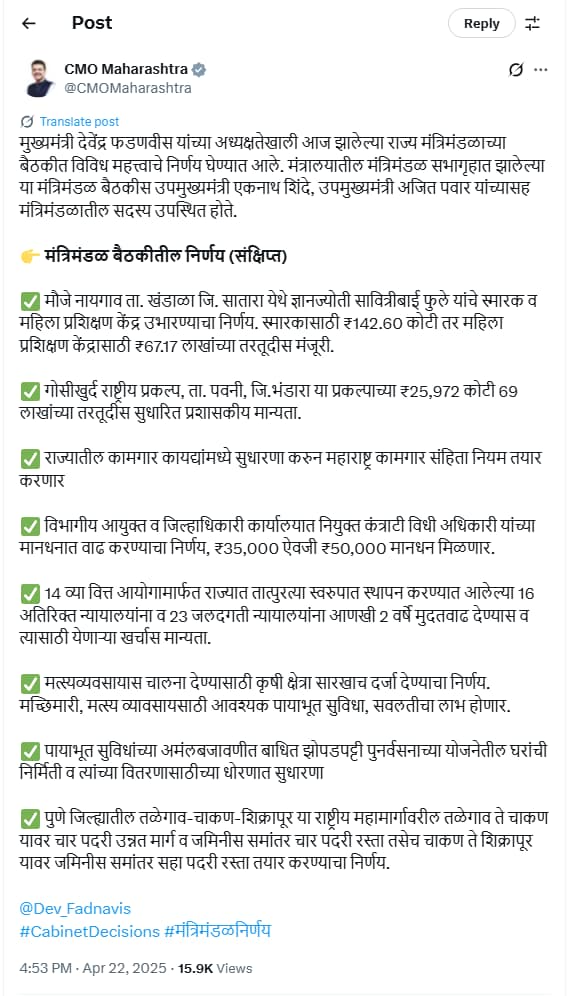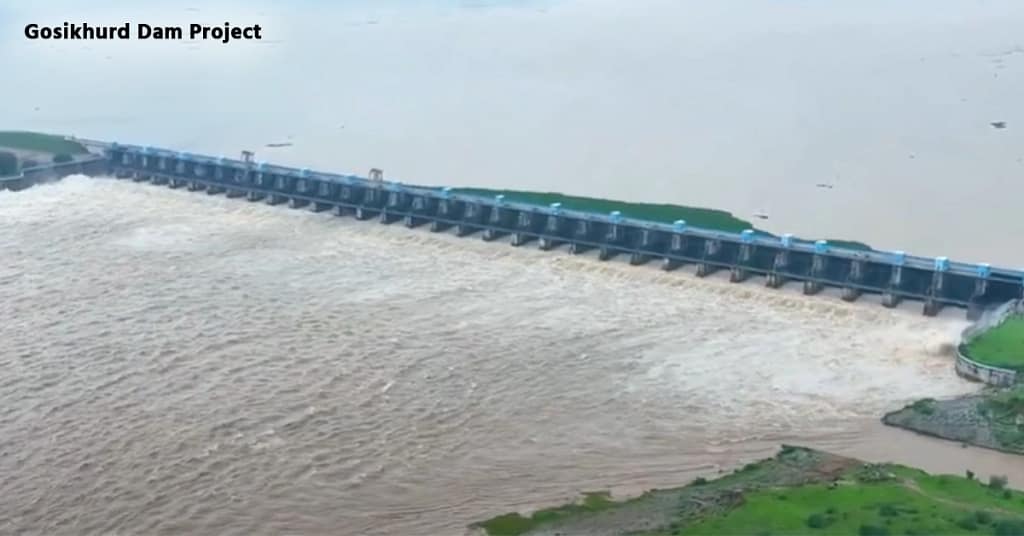The Gosikhurd National Irrigation Project, which is expected to transform the agricultural landscape of Vidarbha, is the largest and most ambitious irrigation project in Maharashtra. This multi-purpose project around the Wainganga River Dam in the Pawni taluka of Bhandara district received administrative approval for execution in 1983; however, for various reasons, the project could not be completed even after four decades. Currently, with the initiatives of Maharashtra Sevak Devendra Fadnavis after he became Chief Minister for the 3rd time, the snail-paced project has sprung back to life. In the state cabinet meeting held in April, the Fadnavis government approved an expenditure of Rs 25,972 crore to complete the stalled work of the Gosikhurd project.
The journey of the Gosikhurd Irrigation project
The construction of a dam at Gosikhurd on the Wainganga River to facilitate irrigation to the farmers in the Bhandara, Nagpur, and Chandrapur districts of Vidarbha was approved on March 31, 1983. The foundation stone of the project was laid by the then Prime Minister Rajiv Gandhi on April 22, 1988. While the cost of the Gosikhurd project initially was Rs 372.22 crore, due to inordinate delay, it increased to a whopping Rs 25,972.69 crore in 2025. The Gosikhurd project was declared a national project by the then central government on February 26, 2009; the only project in the state to receive such status. Therefore, it was expected that the central government would provide sufficient funds for this project. However, neither the Maha Vikas Aghadi in the state nor the United Progressive Alliance government at the center provided the funds required to complete this important project.
Initiatives of the Devendra Fadnavis government for the Gosikhurd project
The state Chief Minister Devendra Fadnavis has taken important decisions to speed up the Gosikhurd project on Wainganga River. The fourth revised administrative approval for the project cost of Rs 25,972.69 was given to this project through a state cabinet meeting held on April 22, 2025. In this, the government approved the recommendation of the State Technical Advisory Committee under the Water Resources Department to complete the Gosikhurd project. Devendra Fadnavis had included this project in the Pradhan Mantri Krishi Sinchhan Yojana during his previous tenure as Chief Minister. Funds were also taken from the central government, and the construction of the Gosikhurd dam was completed. However, in the next 2-3 years under the MVA government, the rest of the work, i.e., the canals on both sides and the four lift irrigation schemes, was again slowed down. Therefore, even though there is water in the dam, most of the target areas of the project have yet to receive water from this dam. So, the funds approved by the Fadnavis government will be used to complete these pending works, along with the hydroelectric projects and rehabilitation of the affected people.

Benefits and Objectives of the Gosikhurd Project
The Gosikhurd project is designed to irrigate around 2.5 lakh hectares of farmland in Vidarbha of which 196,600 ha lands fall in Bhandara, Chandrapur, and Nagpur districts alone. However, until now, 152,743 hectares of area have become irrigable through this project. Aside from irrigation, this project will meet water requirements for domestic and industrial purposes in the concerned districts and boost fisheries and hydroelectric power generation. While 249 villages have been affected by this project, the rehabilitation is still pending in some areas. Therefore Devendra Fadnavis government has emphasized speeding up the rehabilitation process too.
The Gosikhurd National Irrigation Project is a critical project for Vidarbha irrigation development, as it’ll not only meet the irrigation requirement of a large area spanning three districts but will also provide water for drinking and industrial usage in these areas, besides hydropower generation. After a period of slow movement and stalling at times, the project is now reinvigorated with the necessary funding and administrative support under the leadership of Devendra Fadnavis.

